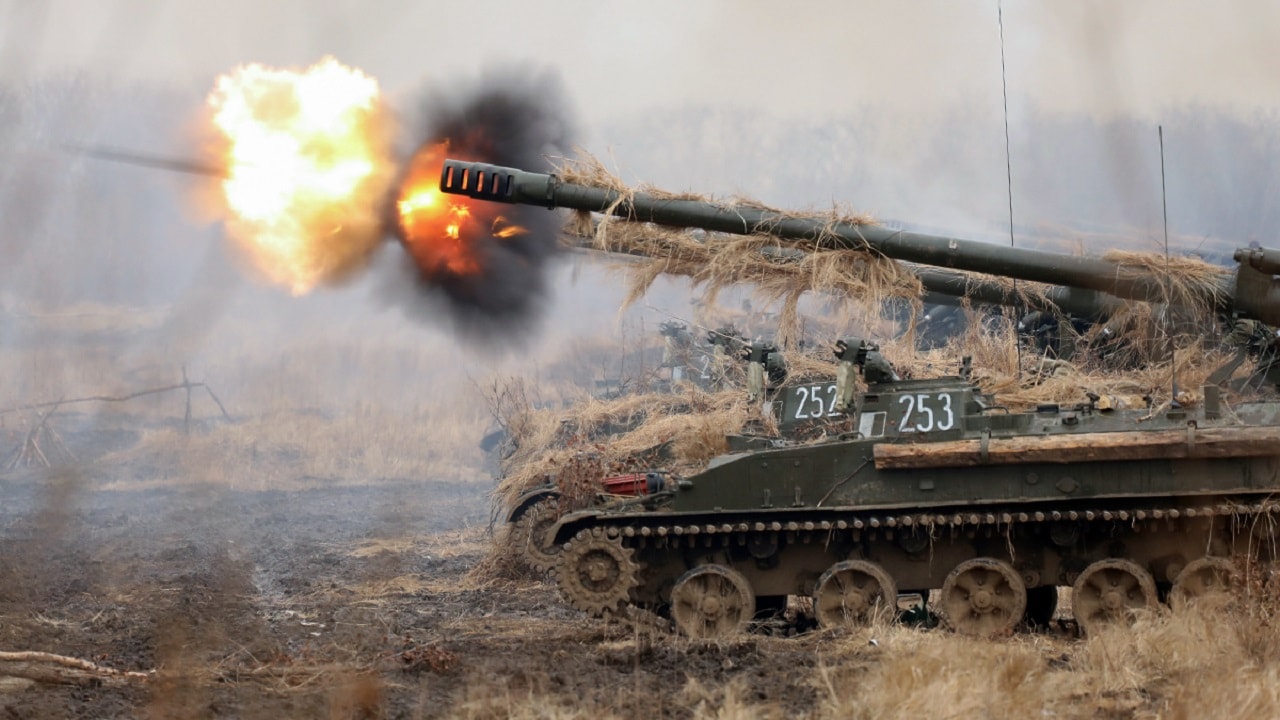Russia Initiates Heaviest Bombing Campaign Since War Began: While reports are breaking that Poland was hit with either rockets or missiles from Russia, the war in Ukraine is heating up fast.
Russia Strikes Ukraine Hard
Russia launched its heaviest, most intense, and most widespread bombing campaign across Ukrainian cities on Tuesday following the embarrassing withdrawal of troops from Kherson city. The strikes have caused yet more power outages across Kyiv and other parts of the country, thanks to the Russian military’s deliberate targeting of the country’s energy infrastructure.
Missiles struck major cities across the entire country, not just the southeast. Lviv and Rivne to the west experienced heavy missile strikes, while Kharkiv in the northeast also experienced missile strikes. Poltava and Kryvyi Rih in central Ukraine also saw missile strikes, as well as Zhytomyr in the north and Mykolaiv and Odesa in the south.
The attacks are a clear sign that Russia intends to continue its tactic of launching indiscriminate bombing campaigns of all major population centers, even in areas where Russian forces are not intending to make advances.
Ukrainian President Volodymyr Zelenskyy said that the sudden barrage of missiles, conducted at roughly the same time saw 85 missiles launched within the space of a couple of hours. The strikes occurred from Tuesday afternoon into the evening. Later reports revealed that more than 100 missiles had hit Ukrainian cities by the evening.
Writing on Twitter, presidential adviser Andriy Yermak argued that the strikes indicated that Russia doesn’t really want to achieve peace.
“Does anyone seriously think that the Kremlin wants peace? It wants obedience. But at the end of the day, terrorists always lose,” Yermak wrote.
Several residential buildings in the capital city of Kyiv were struck on Tuesday, according to Mayor Vitali Klitschko. The Kyiv mayor issued a statement on Telegram noting that medics were on the scene attending to those impacted by the strikes and that several missiles directed towards Kyiv had been shot down.
In a subsequent post, Klitschko said that a missile hit a third building in the Pechersk neighborhood in Kyiv. The strike killed at least one person who was recovered from the building.
Search and rescue operations are ongoing across the city.
Why Now?
The missile strikes came a day after the United Nations General Assembly approved a resolution that would hold Russia accountable for the war in Ukraine, requiring the country to pay reparations once the conflict comes to an end. This alone may further motivate Vladimir Putin to escalate attacks in Ukraine to reverse recent Ukrainian gains – although Putin’s motivations also remain unchanged, given the Kremlin has so far refused to agree to a peace deal with Ukraine without ceding territory to the Russian Federation.
The attacks could also be seen as revenge for the recent embarrassing withdrawal of Russian troops from Kherson city and could suggest that military leaders are working to slow Ukraine down while the Russian military prepares to deploy hundreds of thousands more conscripts who are presently undergoing military training.
Russia has a history of resorting to these kinds of attacks following setbacks and losses. In the wake of the sinking of the Moskva flagship in the Black Sea in the spring, Russian forces launched a wave of indiscriminate strikes across Ukraining cities between October 10 and 11. Russian officials explicitly stated that the bombing campaign was revenge for the Moskva attack, and they were soon followed by a series of drone strikes using devices purchased from Iran. Russia’s delayed reaction was likely a result of inventory problems, evidenced by the fact that drone strikes began as soon as deliveries arrived from Iran.
Russia could, therefore, be enacting revenge for losing Kherson while also trying to delay Ukraine’s advance.
As of last week, 50,000 reservists – out of a pool of more than 300,000 – had been deployed in Ukraine. Also, last week, 440 reservists reportedly died after officers “ran away” from the battlefield. So while Russia’s missile strikes could be an effort to delay further Ukrainian advances until more Russian soldiers are on the ground, it remains to be seen how effective those new soldiers will be and whether their limited training in Russia will be sufficient to regain ground lost to Ukraine in recent months.
British Foreign Secretary James Cleverly also theorized on Tuesday during the G-20 summit that Russia’s attacks suggest that Russia is operating from a position of weakness in Ukraine.
“The callous targeting of Ukrainian cities with more sickening missile attacks today shows only Putin’s weakness,” Cleverly said on Twitter. “Putin is losing on the battlefield and – as we saw today at the G20 – diplomatically too.”
Jack Buckby is a British author, counter-extremism researcher, and journalist based in New York. Reporting on the U.K., Europe, and the U.S., he works to analyze and understand left-wing and right-wing radicalization, and reports on Western governments’ approaches to the pressing issues of today. His books and research papers explore these themes and propose pragmatic solutions to our increasingly polarized society.

